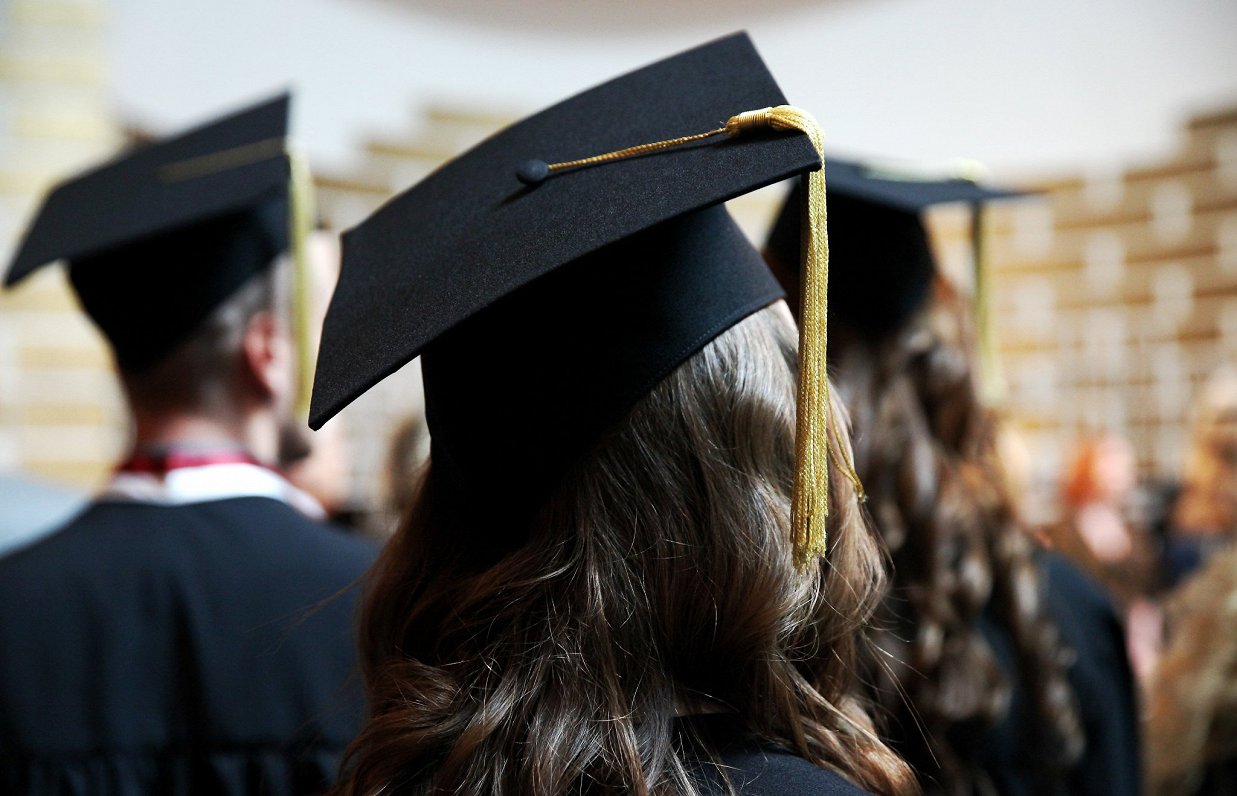In order to become a professor or associate professor in Latvia, the candidate must hold a PhD, but in applying to the position of professor, there must be at least three years' experience as associate professor.
Meanwhile, many countries home to the world's best universities, including the United States (US), the UK, Australia, Canada and also several European countries, allow professor's position in different areas of research without a PhD, whereas the professional and academic excellence is crucial.
Given that Latvian universities have unfortunately not entered the lists of the world's top higher education institutions, changes to the law of higher education would allow them to take a step closer to raising the level of higher education.
This is why, knowing that the Law on Higher Education is currently open to new amendments in Latvia, the largest organizations of the diaspora are calling on legislators to take into account the world's experience by making Latvian universities more open to highly qualified professionals.
Sandra Martinsone, head of Association of Latvian Students and Researchers in the UK said that this is the right time when the law of higher education can incorporate more modern standards by determining who can become a professor and associate professor in Latvia.
“At present, the Latvian Law of Higher Schools makes it mandatory to have a doctorate. If such a condition persists, it means that people who have the position of professor or associate professor somewhere else in the world (..) despite their rich experience in professional, academic, and teaching, they would be unqualified to take a similar post in Latvia.
“In our view, this, thinking about the future and thinking that the Law on Higher Education is not one that is open to amendments every year, could then be one thing to incorporate. In the name of the future, to open the door to the diaspora, and I am not talking about hundreds or thousands of people. It's not a massive invasion with diaspora people who will throw themselves in and take advantage of this opportunity, but at the same time there are undeniably people who have such situations and would be good if the doors were open.”
The change would allow Latvian universities to be less isolated when talking about the academic environment. It is an opportunity to bring international breeze into the education system, and to do so with Latvian people, the diaspora. There may be concerns among opponents that entering into an academic environment without a doctorate would lower the level of this environment, while experience has shown that becoming a professor, for example, in the US, is not a simple or easy process.
According to Daina Dreimane, an associate clinical professor at the University of California's Irvine School of Medicine, there are three key competencies to navigate a career in an academic environment in the US.
"From the beginning, it must be shown that you are competent in your profession, the second competence is pedagogy, how competent you are and involved in the education of young professionals. The third competence is your original scientific activity." It is also required to constantly prove oneself through research and original scientific publications.
The fact that the changes must be made is also accepted by Reinis Znotiņš, Parliamentary Secretary of the Ministry of Education and Science (IZM), stating that the Law on Education and Science has not been changed for many years.
“One of the most important amendments to the Law on Higher Education is to make the Latvian higher education system more open. There is a great deal of protectionism, perhaps we are not fully ready to be open to international competition, open to the knowledge which would certainly be desirable from the State point of view. That is why there is such a proposal, which we and colleagues have also submitted, which would enable diaspora members to stand as candidates, to participate in competitions for academic positions without a doctorate and to stand as a rector.
“This certainly does not guarantee that these people would be elected or automatically nomagneinated in any better position than local candidates. Absolutely not. It would be an opportunity to participate without imposing bureaucratic barriers, and it is important in my view, so I support these proposals and I have also submitted them to the Saeima,” he explained.





























